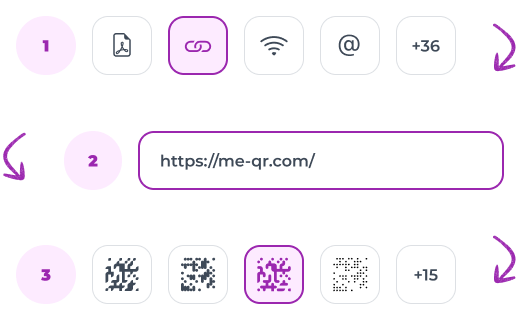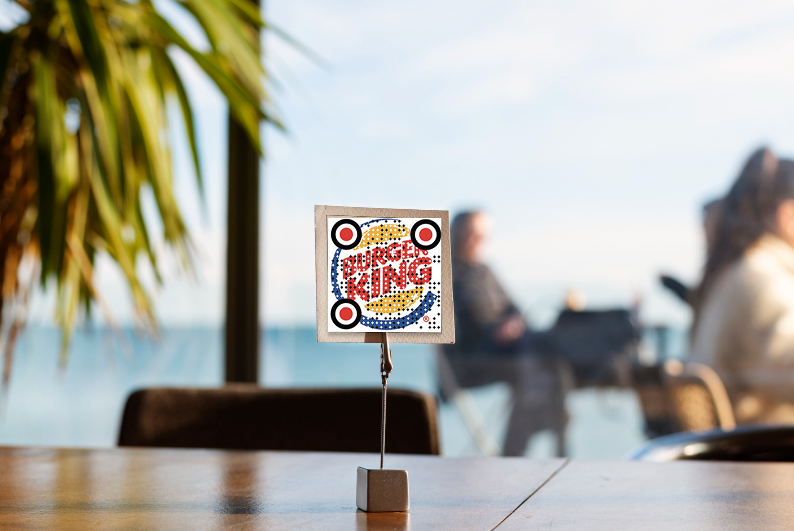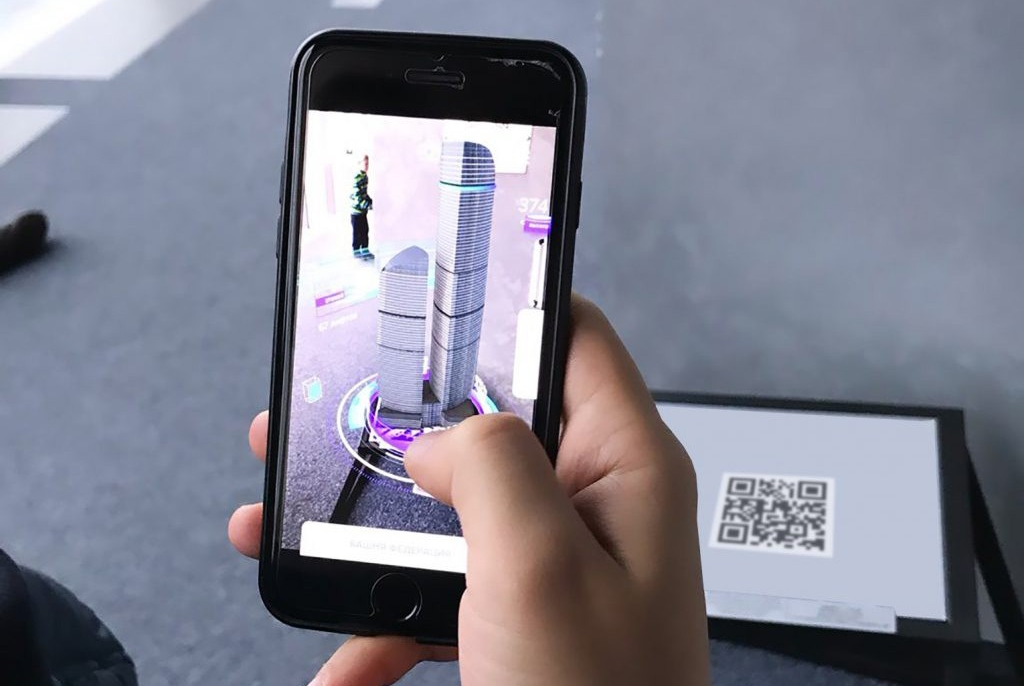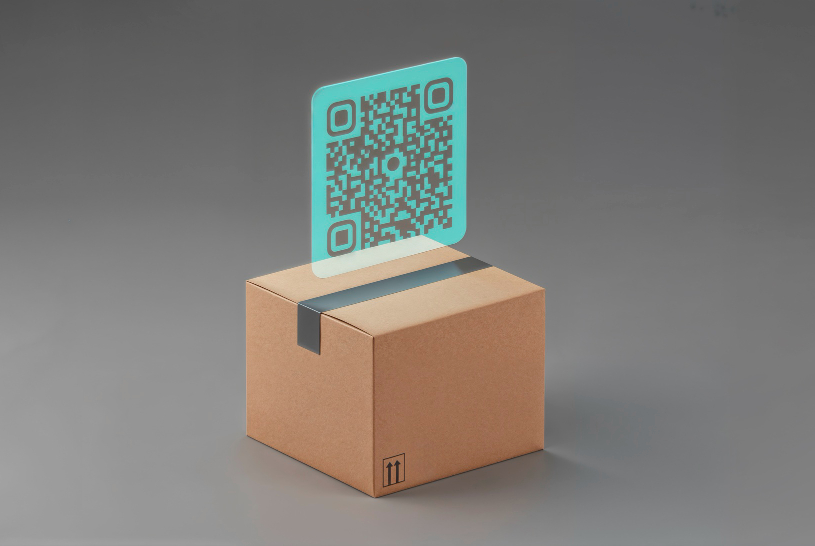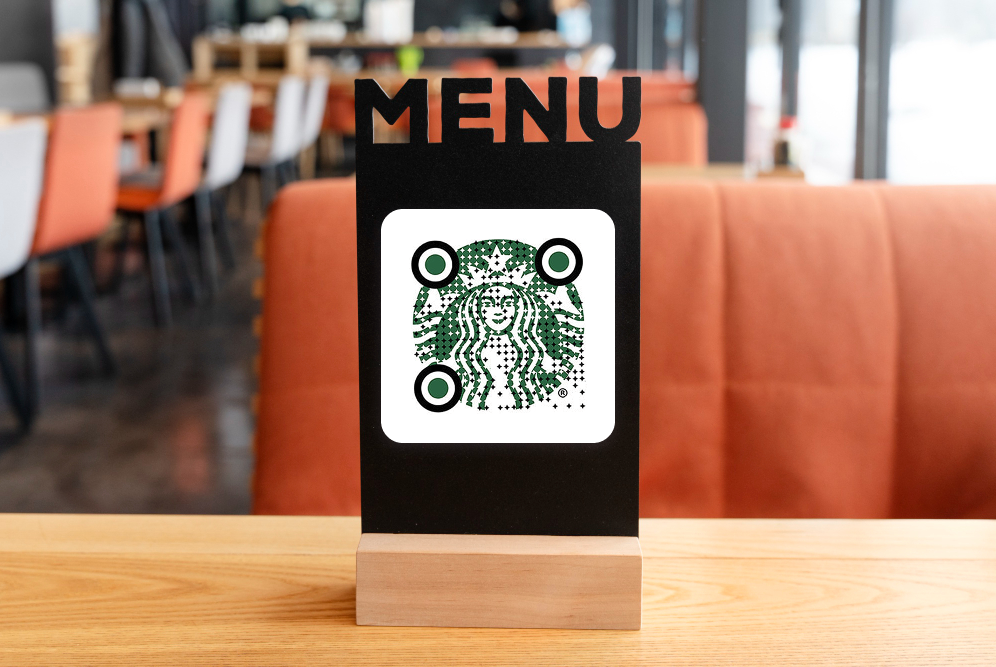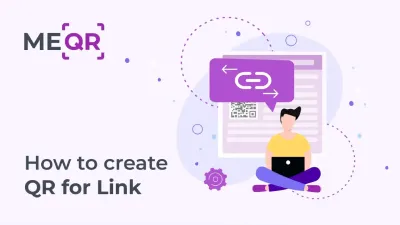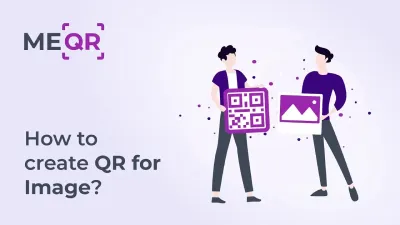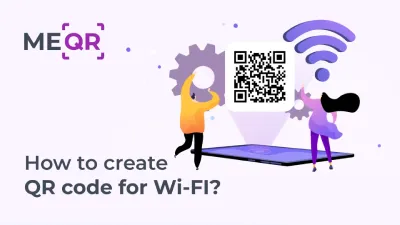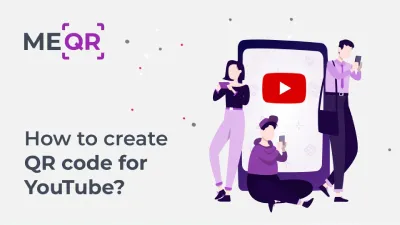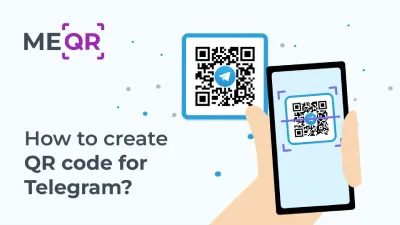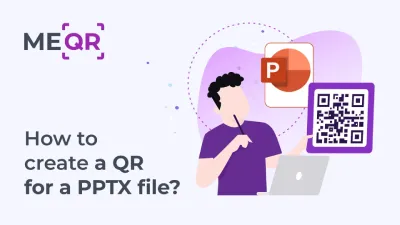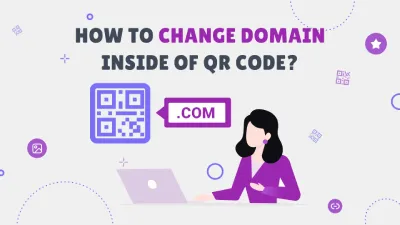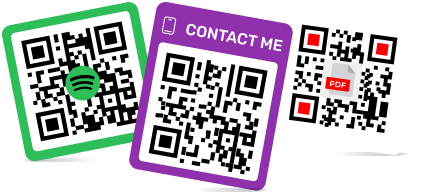What Is QR Technology and How Does it Work?
To create a QR code for a link, video or picture - click on the button below.

If you're thinking “what do QR codes stand for” – you're in the right place. QR (Quick Response) technology has become an integral part of our daily lives, seamlessly connecting the physical and digital worlds. In this comprehensive guide, we will explore the multifaceted aspects of QR technology, from its inception to its myriad applications across diverse industries.
What Is QR Code and How Does It Work?
The meaning of QR technology, initially developed by Denso Wave in 1994, was primarily intended for tracking automotive parts during manufacturing. However, its utility transcended its original purpose, evolving into a versatile tool for encoding and decoding various types of data. We think that in the 21st century, nobody is puzzled by the question “what does a QR code look like”. Everyone knows that QR codes consist of a matrix pattern of black squares on a white background, capable of storing information ranging from video and image to files and crypto payment.
The widespread adoption of smartphones equipped with built-in cameras and QR code scanning capabilities fueled the proliferation of QR technology. Today, QR codes are ubiquitous, found on product packaging, advertisements, tickets, and even restaurant menus.


One notable aspect here is its adaptability to different contexts and applications. From marketing campaigns and QR-code payment technology to inventory management and educational resources, QR codes have permeated virtually every aspect of modern society.
Specific QR code generators like ME-QR have emerged to meet the growing demand for customized QR code solutions. These platforms offer intuitive interfaces and advanced pricing plans, allowing users to create QR codes tailored to their specific needs.
How Does QR Code Work: Step-by-Step Explanation
To comprehend QR technology thoroughly, it's essential to grasp the process of how QR codes work:







Applications of QR-Code Technology
The versatility of QR-code innovations lends itself to a myriad of applications across industries. In the realm of marketing, QR codes serve as interactive gateways, providing consumers with instant access to Instagram, Etsy, and Google review. Retailers leverage QR codes to facilitate mobile payments, loyalty programs, and digital receipts, enhancing convenience and efficiency for both customers and businesses.
Event and ticketing management benefits from QR technology's ability to streamline entry processes, reduce paper waste, and enhance security through unique ticket identifiers. QR codes embedded in educational materials enable seamless access to supplementary resources, interactive quizzes, and multimedia content, enriching the learning experience for students and educators alike.
QR technology plays a pivotal role in inventory management and supply chain logistics, enabling real-time tracking, authentication, and traceability of products throughout the production and distribution processes. From warehouse management and inventory tracking to product authentication and anti-counterfeiting measures, QR codes offer unparalleled efficiency and transparency in supply chain operations.
Benefits of Technology QR-Code
The adoption of QR technology offers a plethora of benefits for businesses, consumers, and society as a whole. Here's a closer look at how QR technology enhances convenience, efficiency, and insights:



Despite its widespread adoption and numerous benefits, QR technology is not without its challenges. Let's examine the key obstacles and limitations that QR technology faces in its implementation and usage.
QR-Code Work Faced with Challenges?
Despite its widespread adoption and numerous benefits, QR technology is not immune to challenges and limitations. Security concerns related to malicious QR codes, phishing attacks, and malware infections pose risks to unsuspecting users who scan codes without proper precautions. Cybercriminals may exploit QR codes to redirect users to fraudulent websites, steal personal information, or initiate unauthorized transactions, highlighting the importance of vigilance and cybersecurity awareness.
Compatibility issues may also arise due to variations in QR code scanning capabilities across different devices, operating systems, and scanning applications. Poor lighting conditions, damaged codes, or low-quality printing may hinder the scanning process, leading to frustration and user dissatisfaction.
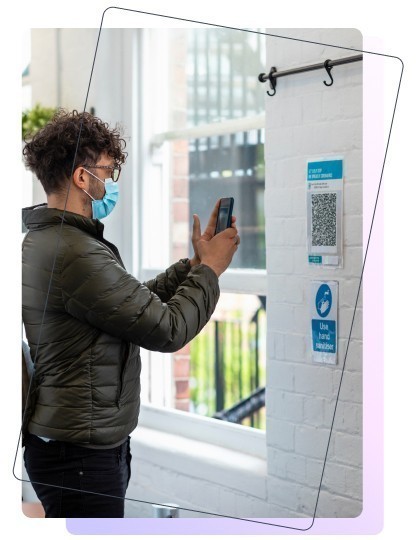
The effectiveness of QR codes in certain contexts may be limited by factors such as cultural preferences, accessibility considerations, and user familiarity on how do codes work technically. That’s why ME-QR educating users about the benefits of QR technology, providing clear instructions for scanning QR codes, and addressing concerns related to security and privacy can help mitigate these challenges and enhance user acceptance and adoption.

Future Trends in QR-Codes That Work
Looking ahead, QR technology is poised to undergo further evolution and innovation, driven by advancements in mobile technology, data analytics, and augmented reality. Emerging trends include the development of dynamic QR codes, which can be updated in real-time to reflect changes in information or context. From event organizers updating ticket details to retailers offering personalized promotions based on real-time inventory data, dynamic QR codes offer unparalleled flexibility and relevance in dynamic environments.
Integration with augmented reality (AR) technology presents exciting opportunities for immersive, interactive experiences powered by QR codes. By overlaying digital content onto physical objects or environments, AR-enhanced QR codes can deliver engaging storytelling experiences, interactive product demonstrations, and location-based information services.
Advancements in machine learning and artificial intelligence (AI) may unlock new capabilities for QR technology, such as intelligent content recognition, context-aware recommendations, and predictive analytics. By leveraging AI algorithms to analyze QR code scan data and user interactions, businesses can gain deeper insights into consumer behavior, preferences, and intent, enabling more targeted marketing campaigns and personalized customer experiences.
As QR technology continues to evolve and adapt to changing consumer preferences and technological advancements, its role in shaping interactions and experiences in the digital age will undoubtedly expand, reaffirming its status as a ubiquitous and indispensable tool for information dissemination, engagement, and transaction facilitation. That's why we're talking about what are QR codes and how do they work.


Conclusion
QR technology has transcended its origins as a simple barcode system to become a pervasive and transformative force in the digital landscape. From its humble beginnings in manufacturing to its widespread adoption across industries, QR technology has revolutionized the way we share information, conduct transactions, and interact with the world around us.
As we navigate an increasingly digital and interconnected society, the potential for QR technology to drive innovation, enhance efficiency, and enrich experiences remains boundless. By leveraging its versatility, adaptability, and scalability, businesses and organizations can unlock new opportunities for growth, differentiation, and value creation in an ever-evolving marketplace.
As we look to the future, understanding QR-code technology promises to reshape industries, redefine consumer experiences, and empower individuals with newfound capabilities and possibilities. By embracing innovation, embracing collaboration, and embracing the transformative power of QR technology, we can chart a course towards a more connected, efficient, and inclusive future for all.
